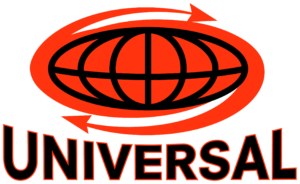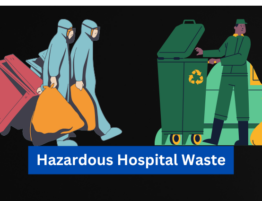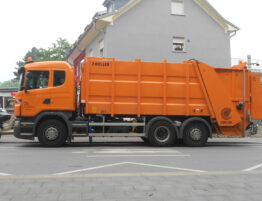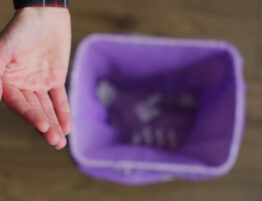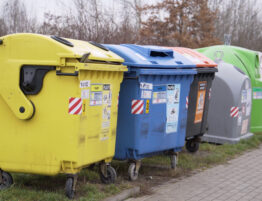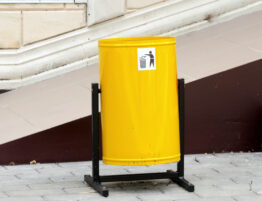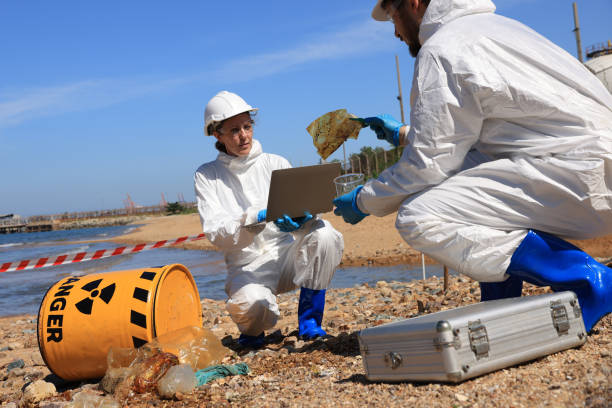
Medical Waste Management
Medical waste is a critical area of bio waste that requires careful handling due to its potential risks to public health and the environment. Medical bio waste includes materials like used syringes, pharmaceuticals contaminated personal protective equipment (PPE) and biological samples. Proper disposal of medical waste is not just a regulatory requirement but a necessity for maintaining safety in healthcare environments. Organizations like My BioWaste focus on providing secure and compliant solutions for managing medical waste ensuring that these hazardous materials are treated and disposed of responsibly.
Types of Medical BioWaste
Medical biowaste is diverse and requires specific handling techniques. Some of the most common types include sharps (such as needles and scalpels) , pharmaceutical waste, chemotherapeutic waste and general medical waste like bandages, gloves and swabs. Each type of waste has its own disposal method to minimize environmental impact and health risks. For example sharps are typically placed in puncture proof containers before incineration or sterilization while pharmaceutical waste requires special handling to prevent contamination of water supplies or the environment.
Importance of Safe Medical Waste Disposal
The safe disposal of medical biowaste is essential for preventing the spread of infectious diseases and protecting healthcare workers, patients and the community. If improperly managed medical waste can lead to serious health hazards including needlestick injuries and the spread of pathogens. Additionally environmental concerns arise when waste is not handled correctly as toxic substances can leach into the soil and water. My BioWaste ensures compliance with state and federal regulations helping healthcare facilities avoid penalties and maintain safety standards while managing their waste streams effectively.
Medical Waste Disposal Methods
There are several methods used for medical waste disposal depending on the type and volume of waste. Autoclaving is a common method that uses steam to sterilize medical waste making it safe for disposal in landfills. Incineration is another widely used method especially for hazardous or pharmaceutical waste as it completely destroys harmful pathogens and chemicals. Some medical waste can also be chemically treated to neutralise contaminants. Each method ensures that waste is treated according to safety guidelines minimizing its impact on the environment and public health.
Compliance and Regulations in Medical Waste Management
Healthcare facilities must adhere to strict guidelines set by agencies such as the Environmental Protection Agency (EPA) Occupational Safety and Health Administration (OSHA) and local state health departments. These regulations cover every aspect of medical biowaste management from proper waste segregation at the source to its final disposal. Compliance helps prevent legal liabilities and ensures that waste is handled in a way that protects both public health and the environment. My BioWaste provides services that meet these regulatory requirements offering healthcare providers peace of mind that their waste management practices are fully compliant.
Sharps Disposal: Preventing NeedleStick Injuries
Sharps which include needles, syringes and lancets are some of the most dangerous types of medical waste. Improper disposal of sharps can lead to needlestick injuries potentially exposing healthcare workers and others to bloodborne pathogens like HIV hepatitis B and hepatitis C. My BioWaste offers specialized sharps disposal services providing puncture resistant containers that are safely collected, treated and disposed of. By following strict safety protocols the risk of exposure to harmful diseases is significantly reduced protecting both the environment and public health.
Pharmaceutical Waste Disposal
Pharmaceutical waste management is another crucial aspect of medical bio waste solutions. Improper disposal of expired or unused medications can lead to environmental pollution particularly in water systems. Pharmaceuticals can also pose risks if they fall into the wrong hands leading to misuse or accidental poisoning. My BioWaste offers secure and compliant disposal solutions for pharmaceutical waste ensuring that medications are handled safely and do not pose a risk to human health or the environment. This includes both controlled substances and over the counter medications that need to be disposed of correctly.
Chemotherapeutic Waste Management
Chemotherapeutic agents used in cancer treatments are classified as hazardous due to their toxic properties. These drugs can pose risks to healthcare workers and the environment if not handled properly. Chemotherapeutic waste includes contaminated IV bags, syringes and personal protective equipment used during treatments. My BioWaste provides specialized services for the safe disposal of chemotherapeutic waste ensuring that these materials are treated with care to prevent contamination and health risks. Proper management of chemotherapeutic waste helps protect both patients and healthcare workers from exposure to harmful chemicals.
Sustainability in Medical Waste Management
Sustainability is becoming an increasingly important focus in medical waste management. Traditional waste disposal methods like incineration can release pollutants into the atmosphere. However new technologies are emerging to reduce the environmental impact of medical waste. For instance autoclaving and other sterilization methods are becoming more widely used offering a greener alternative to incineration. My BioWaste is committed to sustainable practices working with healthcare facilities to minimize waste generation and promote eco friendly disposal options. These efforts help reduce the overall environmental footprint of medical waste management.
Final Thoughts
As healthcare facilities continue to grow and serve more patients the need for efficient and compliant medical waste management will increase. The solutions provided by companies like My BioWaste play a critical role in ensuring that medical bio waste is handled safely and sustainably. By focusing on proper waste segregation, safe disposal methods and adherence to regulatory standards, healthcare providers can protect both public health and the environment. Looking forward to advancements in waste treatment technologies and a greater emphasis on sustainability will further enhance the efficiency and safety of medical biowaste management paving the way for a cleaner and healthier future.
